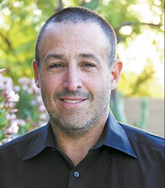The pre-sentencing report for Anthony Gushee, convicted drug dealer, gunman, cold-blooded killer, runs 14 pages in all. It reads like some crappy Hollywood crime show.

Gushee, 47, has spent life drugging, dealing, offending victimizing. The report from Maricopa County’s Adult Probation Departments cites juvenile arrests and “six known misdemeanor convictions, four of which are violent.”
It also details how Gushee was convicted twice in 2003 on felony drug charges — and that’s before we get to this scumbag’s 2019 violent crime spree in Mesa, which takes up most of the pre-sentence report.
“Standard assessments indicate the defendant is a high risk to re-offend with several domains in need of intervention,” the report notes. “The violent nature of two of his pending cases coupled with his history of violence is concerning. His violence is escalating and the police reports indicate he has shown no remorse for his actions.”
Given Gushee’s extensive criminal past, I am beyond amazed that at his sentencing date on June 16, before Superior Court Judge Chuck Whitehead, the killer — who pleaded guilty to aggravated assault for shooting a male victim twice, possession of narcotics and manslaughter for shooting dead 28-year-old Aaron Miller, a father of two — got off with a sentence of only 10.5 years.
A decade for a human life? Talk about getting off easy.
Miller’s sister, Shanice Patterson, objected to the plea agreement as “too lenient.”

Anthony Wayne Gushee
According to the pre-sentencing report — which gives Patterson all of a paragraph — she told the Probation Office “the defendant should never be released from prison” and that “he is a danger to society.”
To say Patterson remains crushed by her brother’s shooting death in the Windemere Hotel on Main Street and by Gushee’s sentence is to put it even more mildly than did Judge Whitehead.
“As next of kin to a victim of a homicide,” she says, “we had no voice about anything pertaining to the case. We weren’t able to fight for justice for my brother. No one cared.”
Patterson also rebuts the reasoning for the “global plea bargain” laid out in the pre-sentencing report. The document explains that “the State made multiple attempts to contact a key witness, who was unable to be located. Without that witness’s testimony, the State’s case became considerably weaker as the witness was the person who identified the defendant as the shooter.”
Says Patterson: “Well, had anyone ever communicated with us, I had text and audio evidence from her, with all the details of the murder. Because a plea was already entered, it was too late to provide that.”
As the nursing student sees it, “I think the ‘justice’ system took the easy way out. Get a plea deal for a few years. Then the criminal will be back on the streets committing more crimes like he has been for the past three decades.”
Gushee spent 1,200 days behind bars before the plea. Thus, he’s scheduled to walk out of prison on Oct. 16, 2028. Circle that date, because if the past is prelude, Gushee will commit yet another crime spree and maybe take a few more lives shortly thereafter.

David Leibowitz, Author
Until then, Aaron Miller’s family will do their best to explain his death to his 11-year-old son and to the daughter Miller never met, a little girl who just turned four and lives with her grandmother.
“I can’t comprehend how a life is only worth a few years,” says Shanice Patterson. “I feel like we were just another case number that was filed away and forgotten.”
If you ask me, the person we needed to forget about was the man who pulled the trigger. Right after we locked up Anthony Gushee and threw away the key.
Written by David Leibowitz for The West Valley View ~ July 1, 2023
